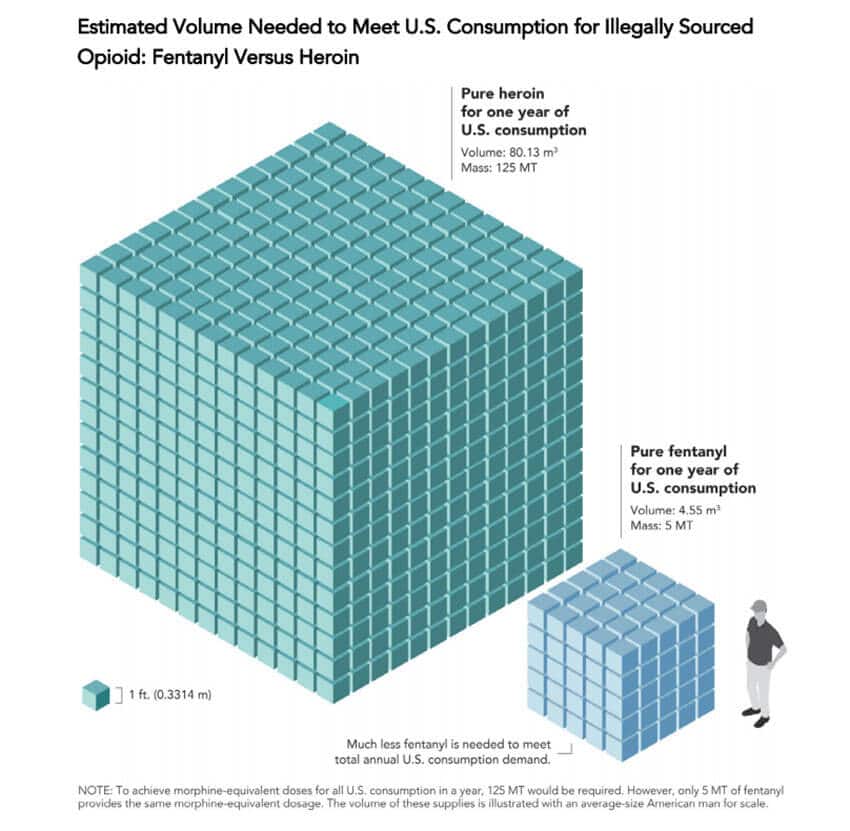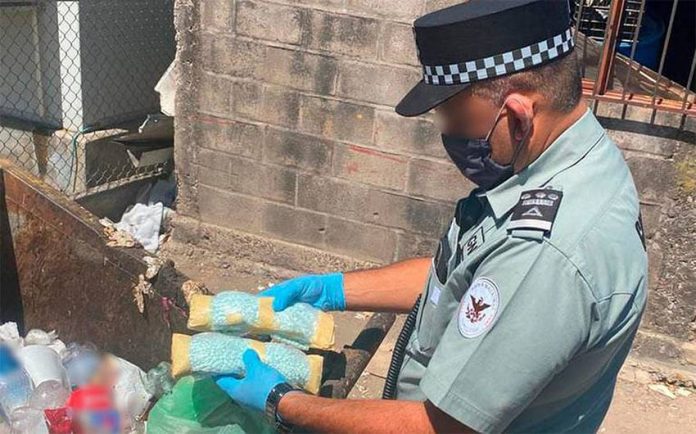The federal government’s non-confrontational security strategy that purports to address the root causes of violence through the delivery of social programs is insufficient to combat synthetic drug trafficking, according to a United States government commission.
In a new report, the Commission on Combating Synthetic Opioid Trafficking said that Mexico is the principal source of illicit fentanyl and similar substances that are smuggled into the United States.
“In Mexico, cartels manufacture these poisons in clandestine laboratories with ingredients – precursor chemicals – sourced largely from [China],” the report said.
“Because illicit fentanyl is so powerful and such a small amount goes such a long way, traffickers conceal hard-to-detect quantities in packages, in vehicles, and on persons and smuggle the drug across the U.S.-Mexico border. It is difficult to interdict given that just a small physical amount of this potent drug is enough to satisfy U.S. demand, making it highly profitable for traffickers and dealers,” it said.
The commission said the Mexican government, “in part out of self-preservation and in part because the trafficking problem transcends current law enforcement capacity,” recently adopted a “hugs, not bullets” approach to managing the transnational criminal groups.

“However, such approaches have not been able to address trafficking issues, and further efforts will be needed,” the report said.
“… In Mexico, two cartels dominate the drug trade,” the commission said, referring to the Jalisco New Generation Cartel and the Sinaloa Cartel.
“Their financial prowess and extensive use of weapons, bribery, threats, and murders of politicians and members of the public– very few of which are ever solved – significantly impedes the state’s capacity to control them.”
The commission said that President López Obrador, “who began his presidency publicly committed to a policy of ‘hugs, not bullets’ for the cartels despite the continued rise of violence,” must do more in the months and years ahead to more directly address the threat that cartels pose to the health and safety of people in both Mexico and the United States.
As things stand, “the flow of precursors from China to Mexico remains almost unabated,” the report said, referring mainly to shipments of chemicals that arrive by sea at the country’s Pacific coast ports.
The commission – made up of representatives from nine U.S. government bodies, including the Senate, House of Representatives, DEA and Department of State – described the trafficking of synthetic drugs into the United States as not only a public health emergency but also “a national emergency that threatens both the national security and economic well-being of the country.”
It noted that more than 100,000 Americans died from drug overdoses in the 12 months leading up to May 2021 – “more than twice the number of U.S. traffic fatalities or gun-violence deaths during that period.”
Some two-thirds of the deaths – “about 170 fatalities each day, primarily among those ages 18 to 45” – involved synthetic opioids, including fentanyl, which can be “up to 50 times more potent than heroin,” the report said.
The commission said that joint U.S. and Mexican efforts – the two countries recently reached a new security agreement that entails greater cooperation to combat drug trafficking – could disrupt the flow of synthetic opioids across U.S. borders, “but real progress can come only by pairing illicit synthetic opioid supply disruption with decreasing the domestic U.S. demand for these drugs.”
“… Supply and demand are two sides of the same coin. Therefore, to reduce illegal supply, the United States must also reduce demand,” the report said.
“… The magnitude of this fast-moving problem and the unique challenges it presents will require a new and different national response across all levels of government and policy domains. Without a major shift in U.S. policy, more American sons and daughters, brothers and sisters, neighbors and friends will perish.”
Mexico News Daily
